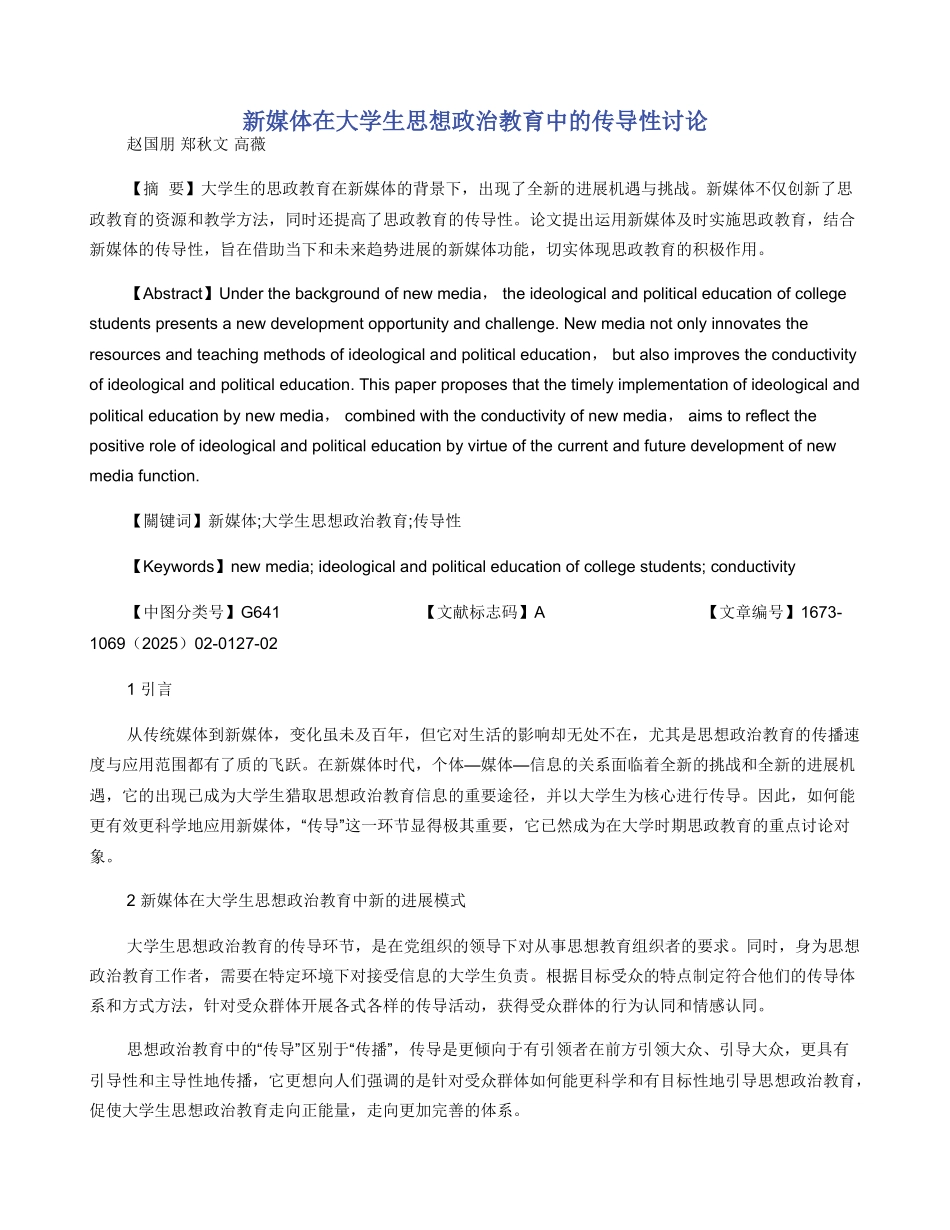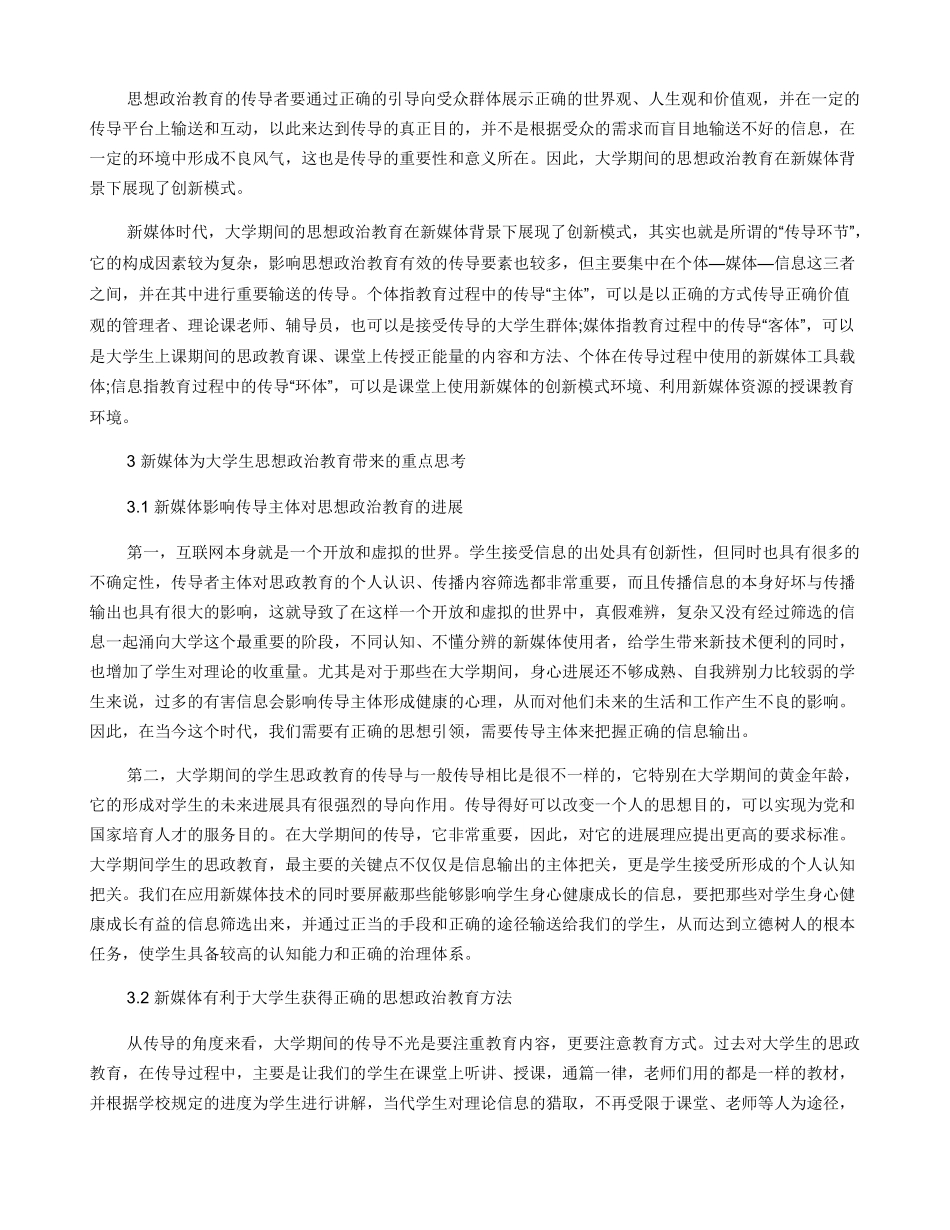新媒体在大学生思想政治教育中的传导性讨论赵国朋 郑秋文 高薇【摘 要】大学生的思政教育在新媒体的背景下,出现了全新的进展机遇与挑战。新媒体不仅创新了思政教育的资源和教学方法,同时还提高了思政教育的传导性。论文提出运用新媒体及时实施思政教育,结合新媒体的传导性,旨在借助当下和未来趋势进展的新媒体功能,切实体现思政教育的积极作用。【Abstract】Under the background of new media, the ideological and political education of college students presents a new development opportunity and challenge. New media not only innovates the resources and teaching methods of ideological and political education, but also improves the conductivity of ideological and political education. This paper proposes that the timely implementation of ideological and political education by new media, combined with the conductivity of new media, aims to reflect the positive role of ideological and political education by virtue of the current and future development of new media function.【關键词】新媒体;大学生思想政治教育;传导性【Keywords】new media; ideological and political education of college students; conductivity【中图分类号】G641 【文献标志码】A 【文章编号】1673-1069(2025)02-0127-021 引言从传统媒体到新媒体,变化虽未及百年,但它对生活的影响却无处不在,尤其是思想政治教育的传播速度与应用范围都有了质的飞跃。在新媒体时代,个体—媒体—信息的关系面临着全新的挑战和全新的进展机遇,它的出现已成为大学生猎取思想政治教育信息的重要途径,并以大学生为核心进行传导。因此,如何能更有效更科学地应用新媒体,“传导”这一环节显得极其重要,它已然成为在大学时期思政教育的重点讨论对象。2 新媒体在大学生思想政治教育中新的进展模式大学生思想政治教育的传导环节,是在党组织的领导下对从事思想教育组织者的要求。同时,身为思想政治教育工作者,需要在特定环境下对接受信息的大学生负责。根据目标受众的特点制定符合他们的传导体系和方式方法,针对受众群体开展各式各样的传导活动,获得受众群体的行为认同和情感认同。思想政治教育中的“传导”区别...


